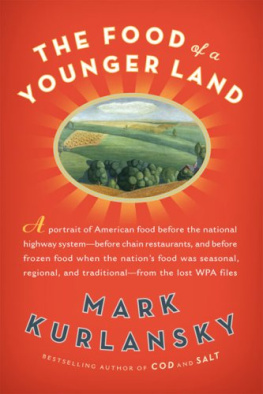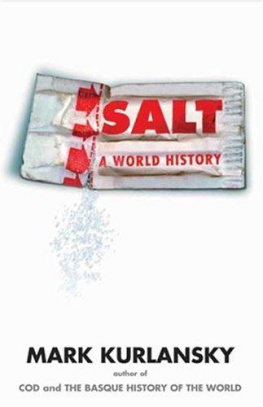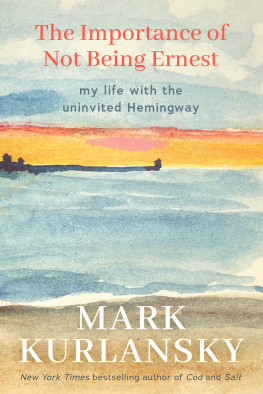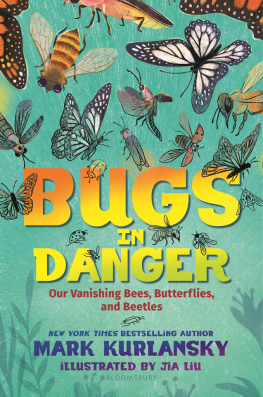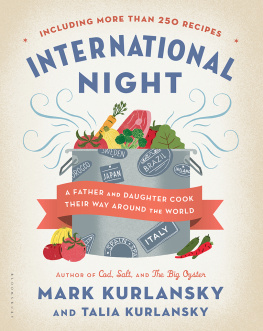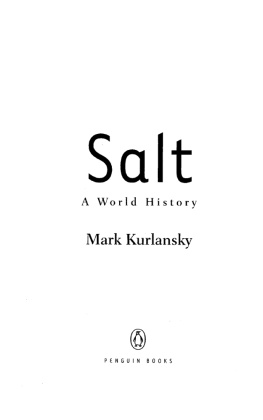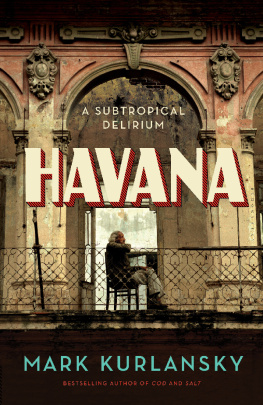Mark Kurlansky - World Without Fish
Here you can read online Mark Kurlansky - World Without Fish full text of the book (entire story) in english for free. Download pdf and epub, get meaning, cover and reviews about this ebook. year: 2011, publisher: Workman Publishing Company, genre: Religion. Description of the work, (preface) as well as reviews are available. Best literature library LitArk.com created for fans of good reading and offers a wide selection of genres:
Romance novel
Science fiction
Adventure
Detective
Science
History
Home and family
Prose
Art
Politics
Computer
Non-fiction
Religion
Business
Children
Humor
Choose a favorite category and find really read worthwhile books. Enjoy immersion in the world of imagination, feel the emotions of the characters or learn something new for yourself, make an fascinating discovery.

- Book:World Without Fish
- Author:
- Publisher:Workman Publishing Company
- Genre:
- Year:2011
- Rating:5 / 5
- Favourites:Add to favourites
- Your mark:
- 100
- 1
- 2
- 3
- 4
- 5
World Without Fish: summary, description and annotation
We offer to read an annotation, description, summary or preface (depends on what the author of the book "World Without Fish" wrote himself). If you haven't found the necessary information about the book — write in the comments, we will try to find it.
World Without Fish — read online for free the complete book (whole text) full work
Below is the text of the book, divided by pages. System saving the place of the last page read, allows you to conveniently read the book "World Without Fish" online for free, without having to search again every time where you left off. Put a bookmark, and you can go to the page where you finished reading at any time.
Font size:
Interval:
Bookmark:
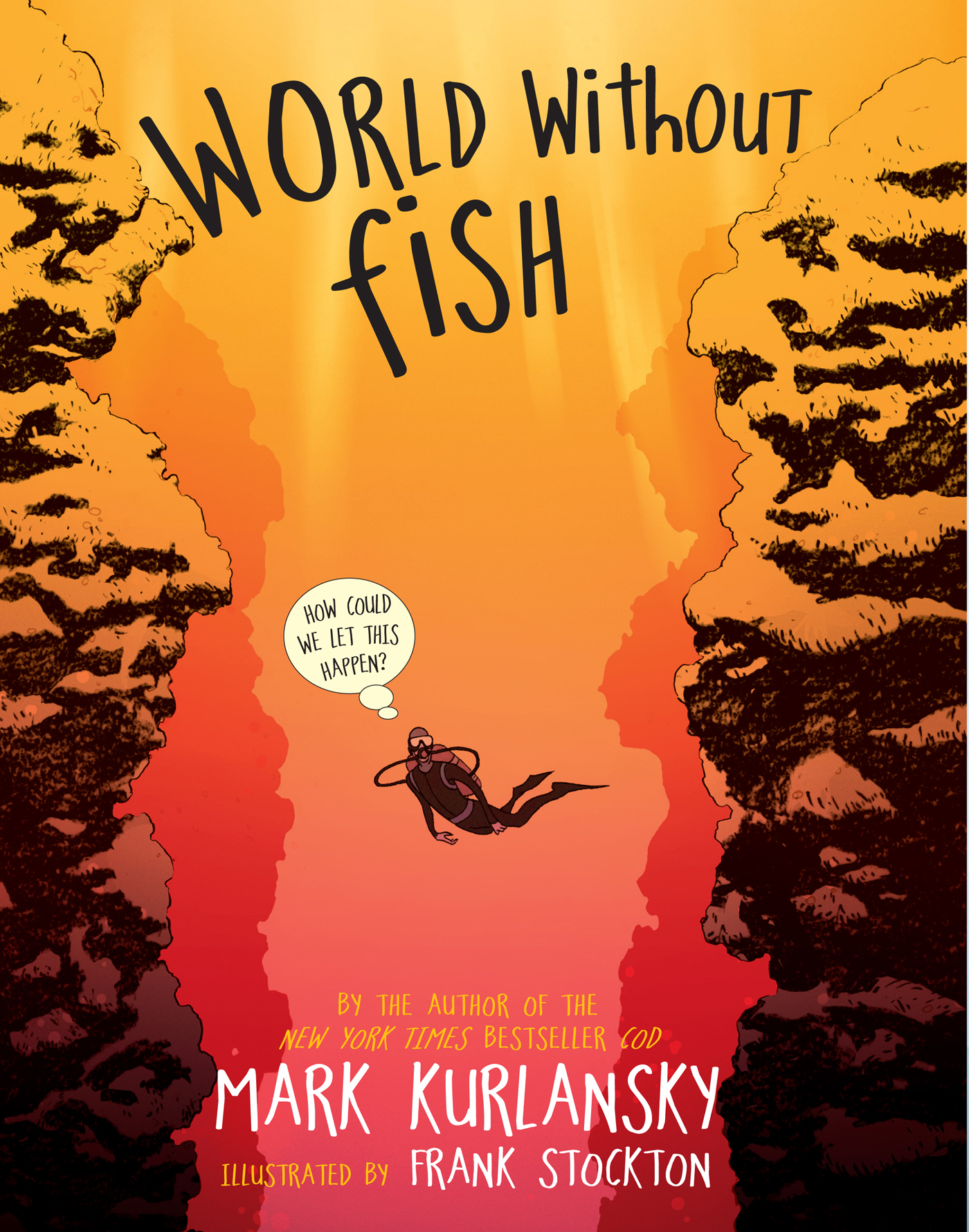
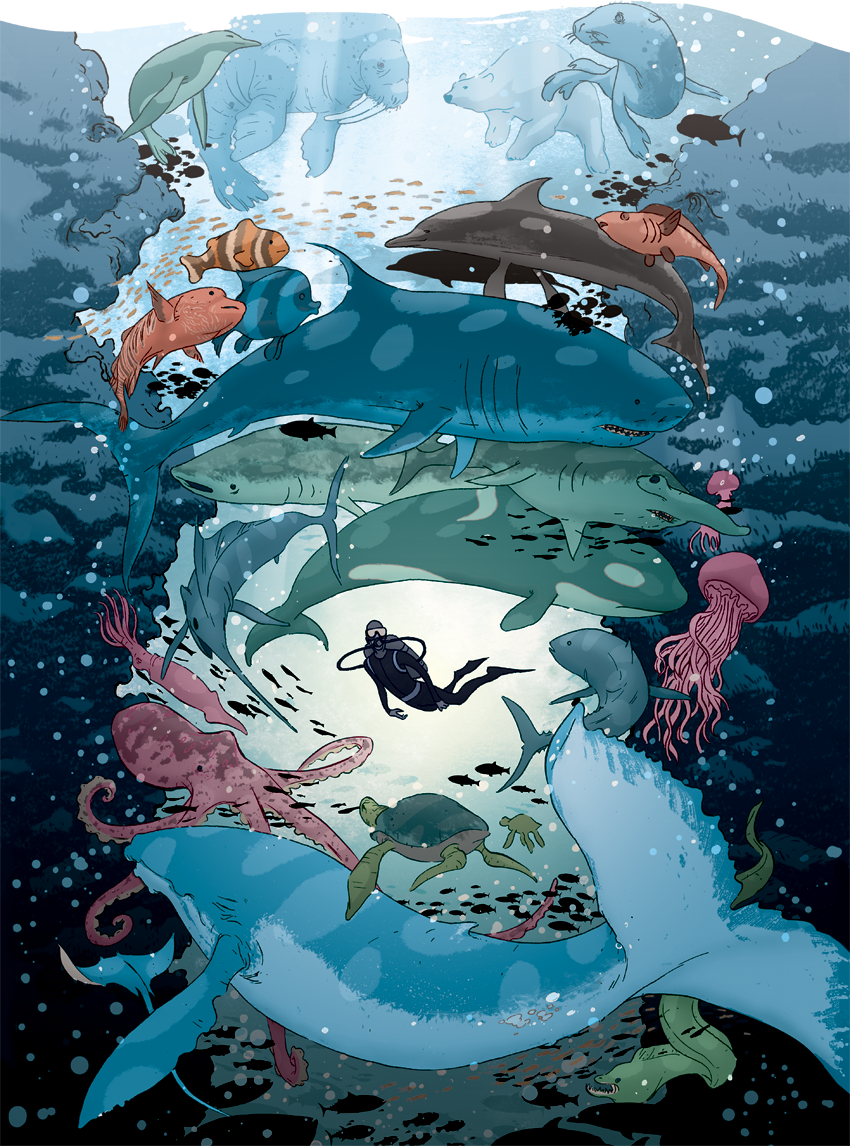
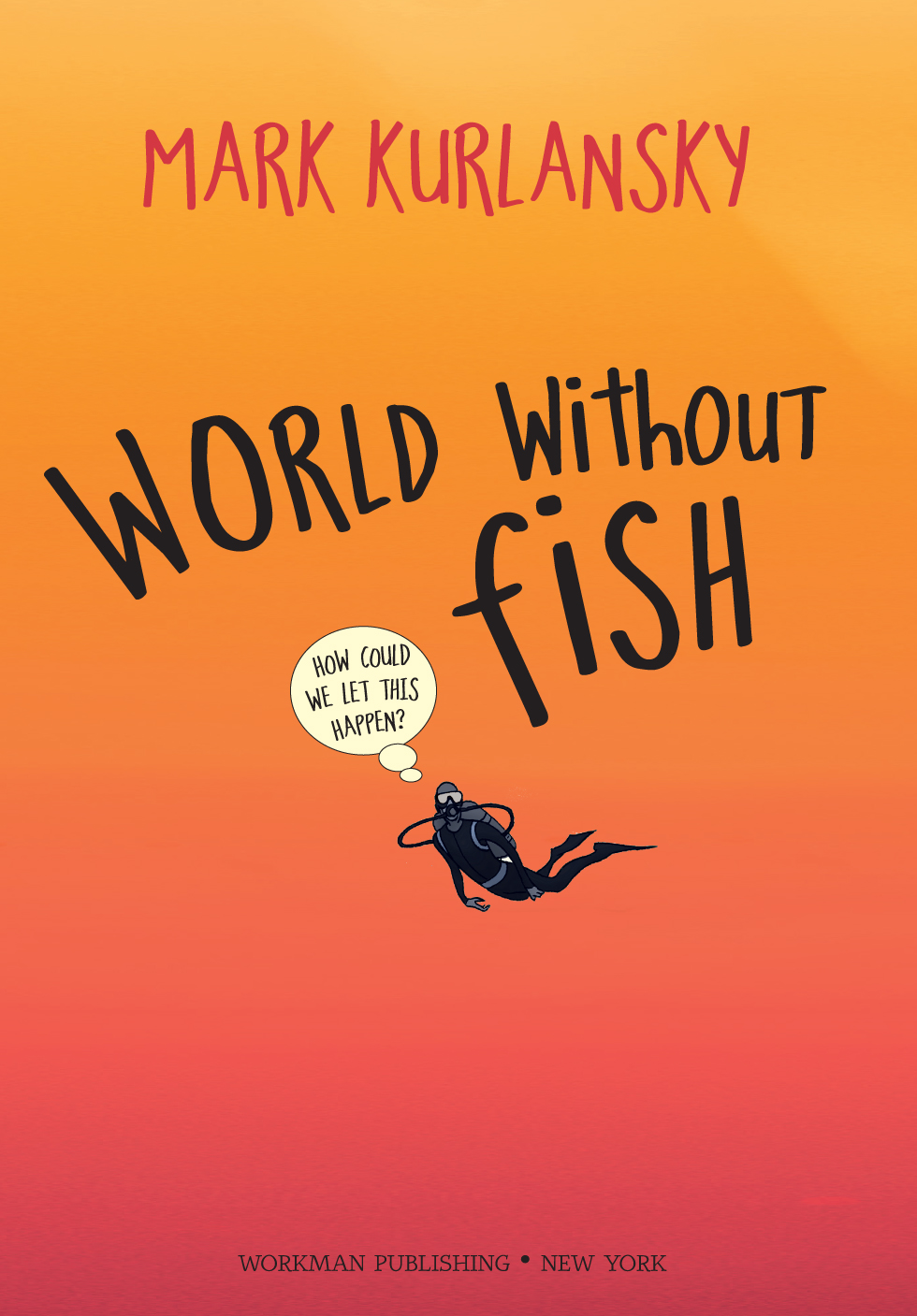
Mark Kurlansky
World Without Fish
How Could We Let this Happen?
Workman Publishing New York
Table of Contents
introduction
Being a Brief outline of the problem
A large stock of individuals of the same species, relative to the number of its enemies, is absolutely necessary for its preservation.
Charles Darwin, On the Origin of Species
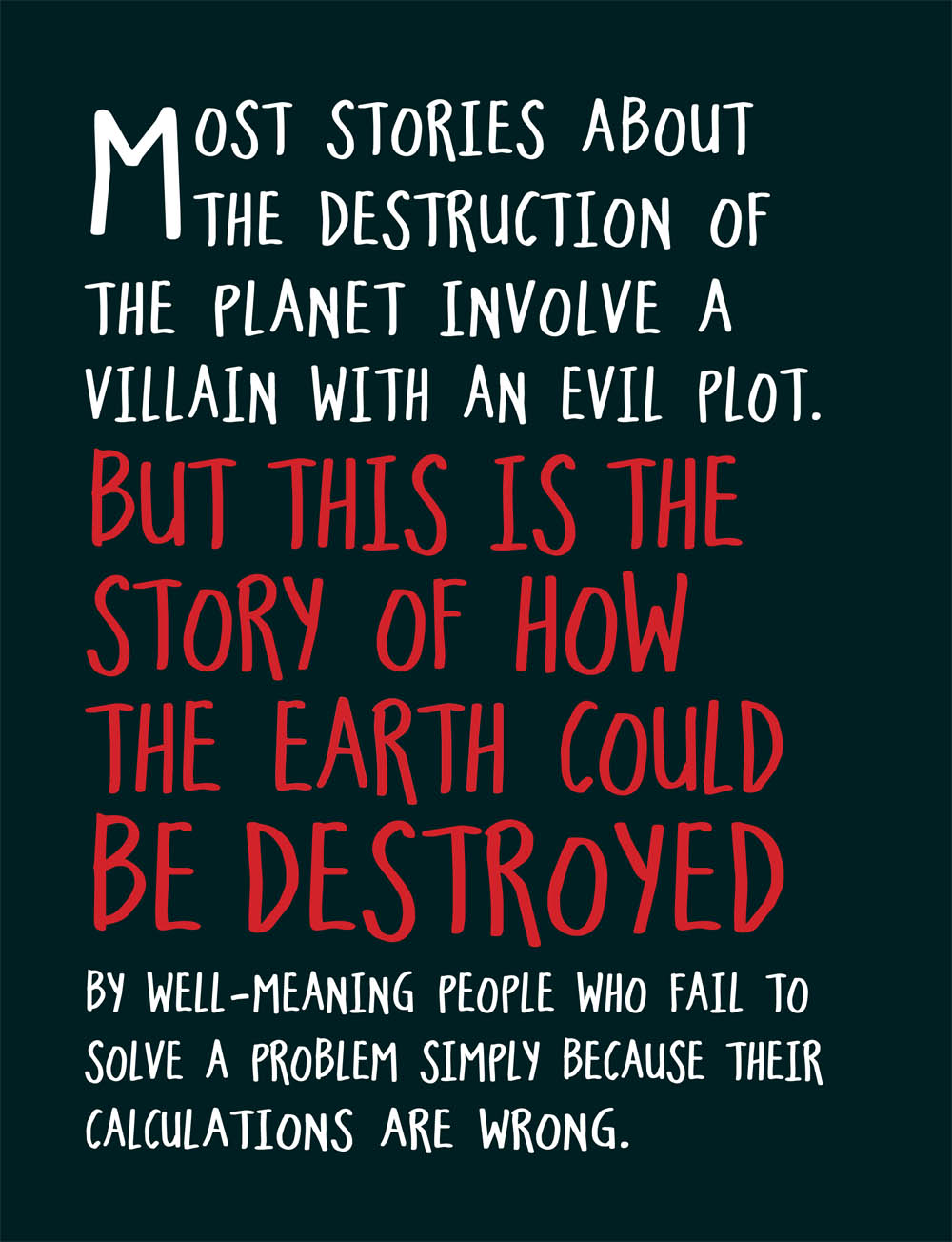
Most stories about the destruction of the planet involve a villain with an evil plot. but this is the story of how the earth could be destroyed by well-meaning people who fail to solve a problem simply because their calculations are wrong.
Most of the fish we commonly eat, most of the fish we know, could be gone in the next fifty years.
This includes salmon, tuna, cod, swordfish, and anchovies. If this happens, many other fish that depend on these fish will also be in trouble. So will seabirds that eat fish, such as seagulls and cormorants. So will mammals that eat fish such as whales, porpoises, and seals. And insects that depend on seabirds, such as beetles and lizards. And mammals that depend on beetles and lizards. Slowlyor maybe not so slowlyin less time than the several billion years it took to create itlife on planet Earth could completely unravel.
People who are in school today are lucky to have been born at a special moment in history. The Industrial Revolution, beginning in the mid-eighteenth century and continuing for the next 120 years shifted production from handcrafts to machine-made factory goods and in so doing completely changed the relationship of people to nature, the relationship of people to each other, politics, art, and architecturethe look and thought of the world. In the next fifty years, much of your working life, there will be as much change in less than half the time. The future of the world, perhaps even
the survival of the planet, will depend on how well these changes are handled. and so you have more opportunities and more responsibilities than any other generation in history.
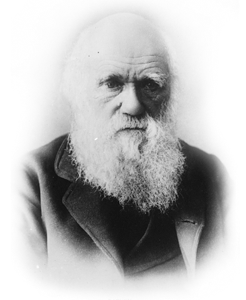
Charles Darwin
(February 12, 1809April 19 1882)
Darwin was born, coincidentally, on the same day as Abraham Lincoln, another great thinker of his age.
One of the great thinkers of the Industrial Revolution was an Englishman named Charles Darwin. In 1859, he penned one of the most important books ever written: On the Origin of Species by Means of Natural Selection, or the Preservation of Favoured Races in the Struggle for Life, more commonly known by its shortened title: On the Origin of Species. In his book, Darwin explained the order of nature as a system in which all the many various plant and animal species struggle for survival. He did not see nature as particularly nice or kind, but as a cruel system in which species attempted to kill and dominate other species in order to secure the survival of their own kind. He wrote, We do not see, or we forget, that the birds which are idly singing round us, mostly live on insects or seeds, and are thus constantly destroying life.
Plants and animals are organized into groups with seven major levels or categories: kingdom, phylum, class, order, family, genus (plural: genera), species .
A good way to remember the seven major categories of animal and plant classification is with this sentence: Kangaroos play cellos, orangutans fiddle, gorillas sing.
A codfish and a human belong to the same kingdom, which is animals. They also belong to the same phylum, which is vertebrates (animals with spines). But after that, they break off into completely different classescod are fish and humans are mammals. More specifically, humans are vertebrates of the class known as mammals in the order known as primates, which we share with monkeys and lemurs. We belong to the family Hominidae, which we share with apes and chimpanzees. Within that family, we are of the genus Homo, which are hominidae that walk standing up on two feet. (Several other Homo genera have all died off and we are the only surviving species of this family: Homo sapiens. Cod, on the other hand, are fishspecifically fish with jawsthat belong to a family called Gadidae. This fish family is fairly evolved, has elaborate fins, and lives in the bottom part of the ocean. They hunt voraciously the species living directly over and beneath them, and have white flesh greatly favored by Homo sapiens.
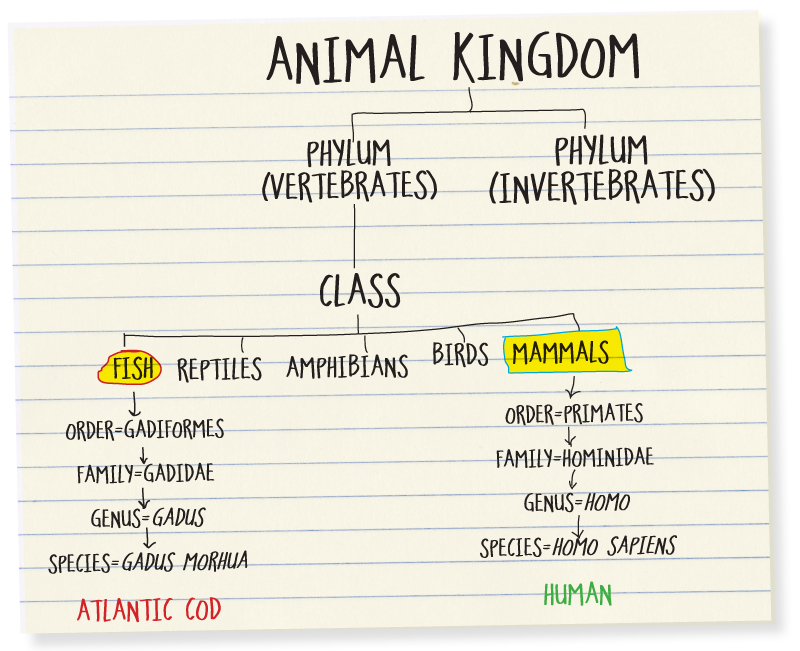
Darwin wrote of how all species struggle for the survival of their own group. So it is not surprising that we humans have the greatest affection for organisms that are biologically close to us. Killing our own species is the worst thing we can do. Killing close relatives to our species, like monkeys, though it occurs, is revolting to most of us. We tend to care more about our own classmammals such as whales and seals and polar bearsthan we do about fish. Is that because they are in a different class? Is that why people tend to have less sympathy for animals that are not in our phylum, like insects? Ultimately, a vegetarian is a human who rejects killing living things from his own kingdomanimalsbut accepts killing from the other kingdomplants.
Darwins great contribution was to understand that in the struggle for survival, nature puts out variations: the species that successfully adapt through the use of variations survive, and the others become extinct. Our family, Hominidae, was a very successful family because it developed numerous variations that went on to be successful genera and developed various species. The genus Homo produced one highly successful species that dominated while the other Homo genera became extinct.
As the millions of other species of plants and animals struggled for survival, circumstances were constantly changing. Species moved into and out of areas, there were changes in weather, some species were eliminated and other became extremely abundant. Each shift, sometimes as minuscule as a shift in the wind, day by dayeven hour by hourchanged the order of nature. These shifts continue to happen, so slightly that we dont even notice. But things are changing and, over time, these changes can be enormous.
As circumstances change, there are variations in speciessometimes a change in color, or a tendency to hunt in a certain way. These changes can be thought of as experiments. Some fail and disappear and some succeed and become a completely different species. It is out of this process, known as evolution, that monkeys eventually developed into human beings.
Darwins ideas were extremely controversial in 1859. Some people were upset that he did not see nature as kind. Others thought his vision of how humans evolved conflicted with what was written in the Bible. They did not like the idea that he accorded no special mystery to the creation of man, that it was just another animal created by chance experimentation in nature. Nor did they want to accept the idea that natural experimentation led to the development of the species and that they did not each appear in a separate act of creation. There are people who are still angry about Darwin because they believe his theories conflict with the Bible. But most people, whether they believe in the Bible or not, think that Darwins explanation of natural order makes sense. For a century and a half now, scientists have been observing natural occurrences and have found that they follow the theories of Darwin.
Next pageFont size:
Interval:
Bookmark:
Similar books «World Without Fish»
Look at similar books to World Without Fish. We have selected literature similar in name and meaning in the hope of providing readers with more options to find new, interesting, not yet read works.
Discussion, reviews of the book World Without Fish and just readers' own opinions. Leave your comments, write what you think about the work, its meaning or the main characters. Specify what exactly you liked and what you didn't like, and why you think so.

